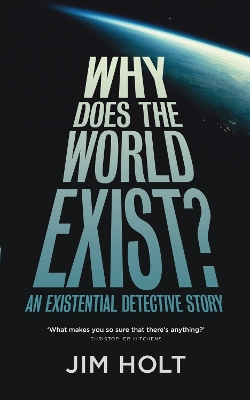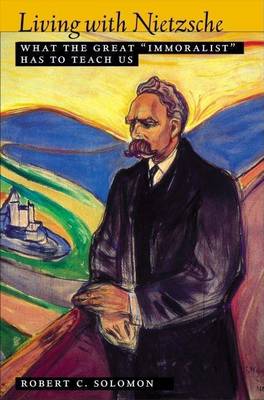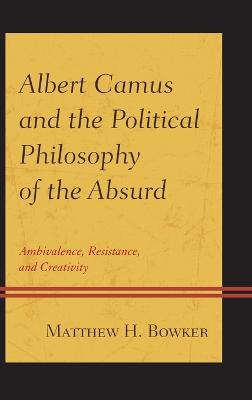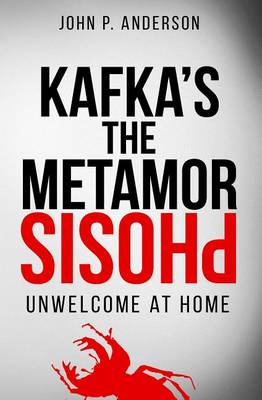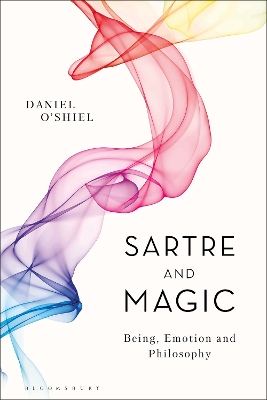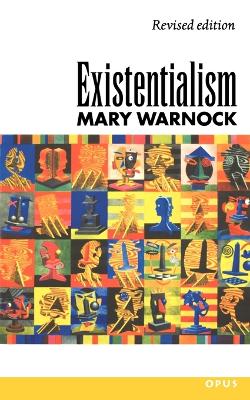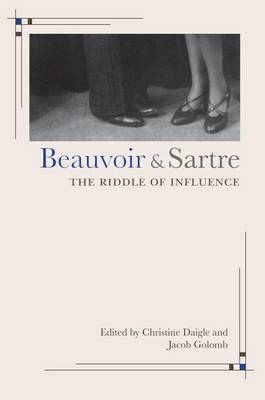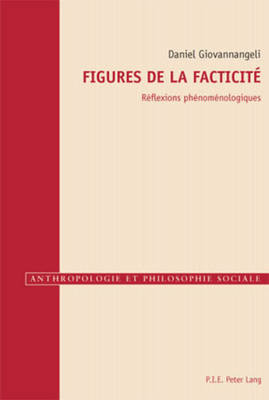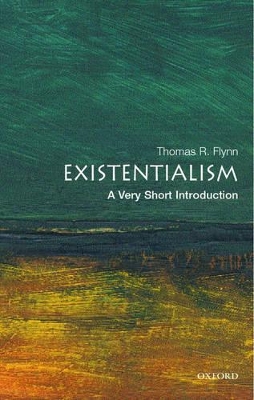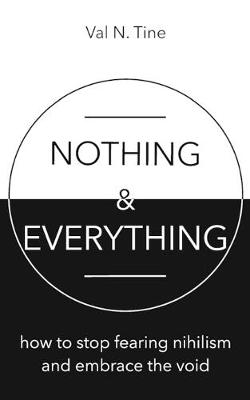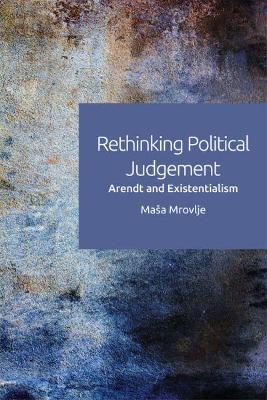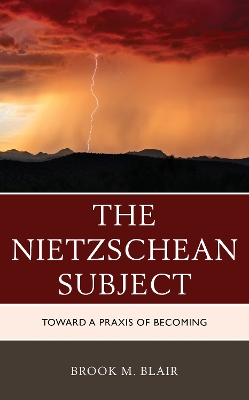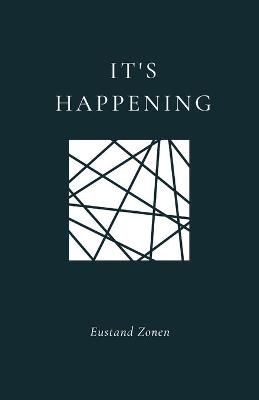The Gay Science (Barnes & Noble Digital Library)
by Friedrich Wilhelm Nietzsche
'Why is there a world rather than nothing at all?' remains the most curious and most enduring of all metaphysical mysteries. Moving away from the narrower paths of Christopher Hitchens, Roger Penrose and Stephen Hawking, the celebrated essayist Jim Holt now enters this fascinating debate with his broad, lively and deeply informed narrative that traces all our efforts to grasp the origins of the universe. With sly humour and a highly original personal approach Holt takes on the role of cosmologi...
Living with Nietzsche: What the Great "Immoralist" Has to Teach Us
by Quincy Lee Centennial Professor of Philosophy Robert C Solomon
Albert Camus and the Political Philosophy of the Absurd
by Matthew H. Bowker
This book demonstrates that Albert Camus' concept of absurdity is best understood when decoupled from what might be called its ontological aspirations. Rather than pretend that absurdity usefully describes 'the human condition,' 'the silence of god,' 'the deprivation of transcendence,' or 'metaphysical revolt,' I argue that, for absurdity to be a fruitful idea, it must be approached as a psychological disposition and its basic tenets must be translated into phenomenal and psychological language....
Letters to Sartre
by Simone de Beauvoir, Quintin Hoare, and Sylvie Le Bon de Beauvoir
In 1983 de Beauvoir published Sartre's letters, maintaining that her own to him had been lost. They were found by de Beauvoir's adopted daughter, and published to a storm of controversy in France. Tracing the emotional and triangular complications of her life with Sartre, the letters reveal her not only as manipulative and dependent but Simonealso as vulnerable, passionate, jealous and committed.
Jean-Paul Sartre's technical and multifaceted concept of magic is central for understanding crucial elements of his early philosophy (1936-1943), not least his conception of the ego, emotion, the imaginary and value. Daniel O'Shiel follows the thread of magic throughout Sartre's early philosophical work. Firstly, Sartre's work on the ego (1936) shows a personal, reflective form of consciousness that is magically hypostasized onto the pre-reflective level. Secondly, emotion (1938) is inherentl...
Existentialism enjoyed great popularity in the 1940s and 1950s, and has probably had a greater impact upon literature than any other kind of philosophy. The common interest which unites Existentialist philosophers is their interest in human freedom. Readers of Existentialist philosophy are being asked, not merely to contemplate the nature of freedom, but to experience freedom, and to practise it. In this survey, Mary Warnock begins by considering the ethical origins of Existentialism, with par...
In recent years interest in the thought of Kierkegaard has grown dramatically, and with it the body of secondary literature has expanded so quickly that it has become impossible for even the most conscientious scholar to keep pace. The problem of the explosion of secondary literature is made more acute by the fact that much of what is written about Kierkegaard appears in languages that most Kierkegaard scholars do not know. Kierkegaard has become a global phenomenon, and new research traditions...
While many scholars consider Simone de Beauvoir an important philosopher in her own right, thorny issues of mutual influence between her thought and that of Jean-Paul Sartre still have not been settled definitively. Some continue to believe Beauvoir's own claim that Sartre was the philosopher and she was the follower even though their relationship was far more complex than this proposition suggests. Christine Daigle, Jacob Golomb, and an international group of scholars explore the philosophical...
Figures de la Facticite (Anthropologie Et Philosophie Sociale, #1)
by Daniel Giovannangeli
De la facticite du monde, de son " jaillissement immotive ", ecrivait Merleau-Ponty, " je ne puis jamais rendre entierement raison ". Comment s'ouvrir a la diversite et a la complexite des epreuves que nous faisons de notre finitude ? Le desir d'accueillir la pluralite des figures de la finitude anime ici une pratique de l'histoire de la philosophie qui, methodiquement, met en tension des philosophes dont la reflexion s'inscrit, a des degres divers, dans l'horizon ou a la limite de la phenomenol...
Existentialism: A Very Short Introduction (Very Short Introductions)
by Thomas Flynn
Existentialism was one of the leading philosophical movements of the twentieth century. Focusing on its seven leading figures, Sartre, Nietzsche, Heidegger, Kierkegaard, de Beauvoir, Merleau-Ponty and Camus, this Very Short Introduction provides a clear account of the key themes of the movement which emphasized individuality, free will, and personal responsibility in the modern world. Drawing in the movement's varied relationships with the arts, humanism, and politics, this book clarifies the...
In Kierkegaard's Romantic Legacy, Anoop Gupta develops an original theory of the self based on Kierkegaard's writings. Gupta proceeds by historical exegesis and considers several important ways of thinking about self outside of the natural sciences. His study moves theories of the self from theology toward sociology, from a God-relationship to a social one, and illustrates how a loss in theological underpinnings partly contributes to the rise in the popularity of cultural relativism. By drawing...
How can we reinvigorate the human capacity for political judgement as a practical activity capable of addressing the uncertainties of our postfoundational world? The book takes up this challenge by drawing on the historically attuned perspective of 20th-century philosophies of existence - in particular the work of Jean-Paul Sartre, Simone de Beauvoir, Albert Camus and Hannah Arendt. Displacing the lingering rationalist temptations, Masa Mrovlje engages these thinkers' aesthetic sensibility to de...
Based upon an attentive reading of Nietzsche's writings and situated within a framework derived largely from such post-Nietzschean thinkers as Deleuze, Guattari, Klossowski, Foucault, Derrida, Negri, and Sloterdijk, this study develops a treatment of Nietzsche's philosophical enterprise as constituting a materialist metaphysics of pure becoming, of pure immanence and the power of the virtual. It thus seeks to challenge traditional characterizations of Nietzsche as laying claim either to the end...
Maurice Merleau-Ponty (1908-1961) is one of the most important philosophers of the Twentieth century. His theories of perception and the role of the body have had an enormous impact on the humanities and social sciences, yet the full scope of his contribution not only to phenomenology but philosophy generally is only now becoming clear. In this lucid and comprehensive introduction, Taylor Carman explains and assesses the full range of Merleau-Ponty's philosophy. Beginning with an overview of Mer...
Elements of Criticism (The Thoemmes Library of eighteenth century texts, #7)
by Henry Home Kames

